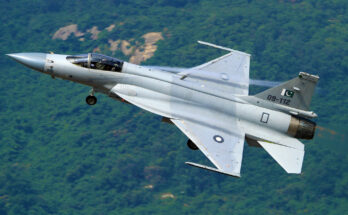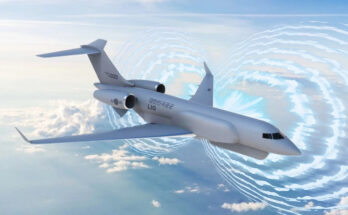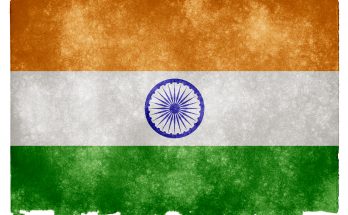
Over the weekend, rumors spread of the death of Gurbanguly Berdimuhamedov, the president of Turkmenistan. The rumors are currently believed to be false, but his passing would set up a leadership transition at a particularly difficult time for Turkmenistan, as the country faces a serious economic crisis.
The director of the Centre for Monitoring Eurasian Affairs, Aslan Rubayev, said over the weekend that President Berdimuhamedov had died in the last few days, after he went on vacation. He cited as his source a businessman in Turkmenistan, who is claimed to have ties to the government’s security forces. Turkmen dissidents reported that he died as a result of kidney failure on July 20.
Given the paucity of news available at any given time from Turkmenistan owing to the state’s tight control of media, these sorts of rumors are difficult to independently verify. President Berdimuhamedov has not been seen since the rumors emerged. State media produced footage of him in a video posted to YouTube on July 21, though the footage of him specifically is believed to be from earlier in the month.
The government itself has denied the rumors. Shadurdy Mereov, the Turkmen ambassador to nearby Kyrgyzstan, refuted the information. Russian business newspaper Kommersant cited a source in the Turkmen Foreign Ministry as calling the rumors an “absolute lie.”
Suspicion will mount should President Berdimuhamedov not emerge in state television footage, though at present it is presumed that the rumors are not true.
A leadership transition from his rule – which would only be Turkmenistan’s second in the post-independence era – would come in a challenging environment for the country. Officially, Turkmenistan is in a golden age of prosperity, according to the state-run media, which regularly features glossy footage of the country’s prosperity. But beneath the veneer, the economy is struggling. The country faces hyperinflation and, reportedly, a widespread shortage of food. Subsidies have been curtailed to thunderous applause from the People’s Assembly, currency exchange controls are in place, and many citizens have sought to flee.
Turkmenistan is rich in natural gas. The government, however, has not instituted serious reforms to the economy, meaning that it is extremely dependent on revenue from gas exports to operate. The bulk of Turkmen gas exports go to China, but a portion likely goes toward servicing the country’s existing debt to Beijing.
Military procurement has conspicuously remained vibrant even amid the economic crisis, suggesting government paranoia about stability. Turkmenistan is leery of the situation in neighboring Afghanistan. While violence has generally been contained to Afghanistan, the looming American withdrawal is a source of uncertainty. Washington aims to achieve a political solution between the Taliban and the Afghan government before downsizing its presence, but the possibility of the two parties reneging on commitments – or a third party, like the Islamic State, spoiling a deal – remains strong.
At least from the Turkmen perspective, cross-border violence could rise as the U.S. leaves Afghanistan. Recently, Turkmen state media showed off footage of an A-29 Super Tucano, a light attack aircraft, that was apparently in the country. It is believed the aircraft was there for promotional reasons, as several Italian aircraft were in the last few years, but its presence in Turkmenistan indicates that Ashgabat is at least considering the purchase of the aircraft, probably for counterinsurgency purposes. Given the deepening of ties between Turkmenistan and the UAE, the Turkmen Air Force’s interest may be influenced by the Emirati experience in its operations using light attack aircraft against militants in places like Yemen.
The government is not known to have placed an order for the Super Tucano, though presumably such a deal would not be announced. Other than appearance in military exercises, Turkmenistan only ever reveals defense purchases at its annual Independence Day parade. The country declared independence on October 27, 1991, and every year on October 27 the government holds a lavish parade through Ashgabat. Last year, Independence Day was moved a month ahead, to September 27.
Parades over recent years show that the Turkmen security forces have recently received a range of new armored and tactical vehicles, procuring from suppliers in Turkey, Saudi Arabia, the UAE, and China, These vehicles should assist the country in rapidly responding to threats at the border. New armed unmanned aerial vehicles, multiple rocket launchers, and surface-to-air missile systems have entered service.
Though Turkmenistan does have some legitimate external concerns – Afghanistan being one, with competition in the Caspian Sea being another – some of the procurement may stem from concern over internal instability. The state of the economy, in particular, is a source of real problems for the government. Besides the poor living conditions for the average citizen, collapsing energy revenues reduce the ability of the leadership to provide financial and other incentives to the elites.
Even before these latest rumors of his demise, President Berdimuhamedov has long been rumored to be in poor health. Perhaps related, the president’s son, Serdar Berdimuhamedov, has begun to rise through the ranks in recent years. Last month, President Berdimuhamedov named his son a provincial governor. President Berdimuhamedov may be setting up Serdar to be his successor. (Like most things, the actual succession plan is not publicly specified.)
Whether this proves palatable to key stakeholders in Turkmenistan is an uncertainty. Turkmenistan is an authoritarian government, but maintaining support from the elites remains crucial in establishing and securing power. President Berdimuhamedov himself came to power not from familial relation to his predecessor, Niyazov Saparmurat, but from agreements among the elite on selecting him. That transition went smoothly enough, as did a similar succession in Uzbekistan in 2016, and the transition from President Berdimuhamedov’s rule, whenever it comes, may follow suit. Predicting gloom in Central Asian succession is a regular activity, but the risk is that, especially in a sudden succession crisis, some Turkmen elites may seek to outmaneuver Serdar, whose rise they may well not have had significant influence over, rather than accede to his rule. His father’s mismanagement of the economy probably has not won Serdar any favors in a potential transition.
Being that the reports of President Berdimuhamedov’s death are perhaps premature, Turkmenistan may not yet face a succession crisis. Whenever it does, however, the matter is likely to be turbulent – more so if the economy remains in a rut.
Military markets analyst, covering Eurasia, Middle East, and Africa.




